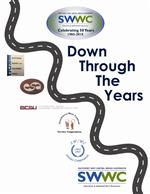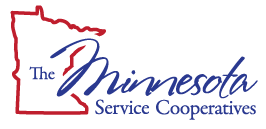Who We Are
- Mission: To be a collaborative partner providing exceptional services, innovative solutions and proactive support.
- Vision: To create a future where children, families, schools and communities learn, succeed and thrive.
- Value Statements:
- SWWC believes in service to others. We care about the success of those we serve and those we employ. We work to anticipate the needs of others and collaboratively implement innovative solutions.
- SWWC believes integrity is the foundation of our actions. We are honest, trustworthy, transparent and ethical. We are committed to doing the right thing.
- SWWC encourages sincerity. We believe in open and honest communication. We welcome everyone's contributions and ideas.
- SWWC believes collaboration aids innovation and creativity, improving our ability to provide exceptional services.
- Diversity Statement: SWWC embraces and celebrates all of our members, and we work to identify unique frameworks within the various communities we serve and actively respond by adjusting our practices to meet the ever-changing needs. We strive to recruit diverse and inclusive teams that will have a positive impact on our programs and services and help us better serve our members, customers and employees.
How We Operate
No state or local tax dollars are used to fund our programs and services. Operating revenue is derived from membership fees and grants. We invite corporate and foundation sponsorship of student and adult enrichment programs and services. We are customer driven, cost effective, and entrepreneurial - and we value and practice initiative, ingenuity, and creativity! Explore our website and learn more about the unique programs and services we offer our members.
Our History
- The SW/WC Educational Research and Development Council (ERDC) was created in 1966, independently organized by area school superintendents willing to develop a dues structure to fund the council.

- In 1973, the state legislature authorized the creation of a pilot organization, and the ERDC became the SW/WC Educational Service Area (ESA).
- The ESA was so successful that the 1976 legislature expanded the concept to all regions of the state, and renamed the agencies ECSUs (Educational Cooperative Service Units), resulting in the SW/WC ECSU. The purpose of the nine regional ECSUs was to perform regional educational planning and assist in meeting children's specific educational needs that may be better provided for by an ECSU than by individual school districts.
- In 1992, the state legislature authorized the ECSUs to provide services to cities, counties, and other governmental units (CCOGAs).
- In 1995, the state legislature renamed the agencies Service Cooperatives, resulting in the Southwest/West Central Service Cooperatives, serving economic regions 6 and 8.



